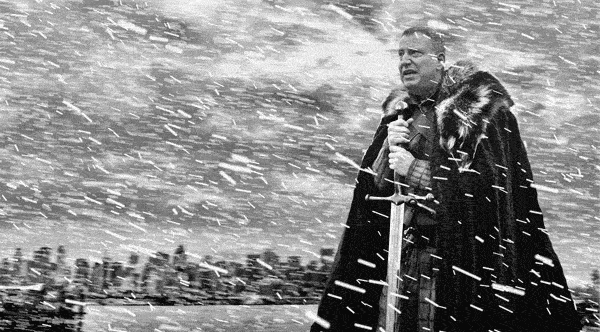This is your morning Open Thread. Pour your favorite beverage and review the past and comment on the future.
Find the past “On This Day in History” here.
January 28 is the 28th day of the year in the Gregorian calendar. There are 337 days remaining until the end of the year (338 in leap years).
On this day in 1916, President Woodrow Wilson nominates Louis Brandeis to the Supreme Court. After a bitterly contested confirmation, Brandeis became the first Jewish judge on the Supreme Court.
A graduate of Harvard Law School, Brandeis quickly earned a reputation in Boston as the people’s attorney for taking on cases pro bono. Brandeis advocated progressive legal reform to combat the social and economic ills caused in America by industrialization. He met Woodrow Wilson, who was impressed by Brandeis’ efforts to hold business and political leaders accountable to the public, during Wilson’s 1912 campaign against Theodore Roosevelt. Brandeis’ early legal achievements included the establishment of savings-bank life insurance in Massachusetts and securing minimum wages for women workers. He also devised what became known as the Brandeis Brief, an appellate report that analyzed cases on economic and social evidence rather than relying solely on legal precedents.
Louis Dembitz Brandeis (November 13, 1856 – October 5, 1941) was an Associate Justice on the Supreme Court of the United States from 1916 to 1939. He was born in Louisville, Kentucky, to Jewish parents who had emigrated from Europe. He enrolled at Harvard Law School, graduating at the age of twenty with the highest grade average in the college’s history.
Brandeis settled in Boston where he became a recognized lawyer through his work on social causes that would benefit society. He helped develop the “right to privacy” concept by writing a Harvard Law Review article of that title, and was thereby credited by legal scholar Roscoe Pound as having accomplished “nothing less than adding a chapter to our law”. Years later, a book he published, entitled Other People’s Money, suggested ways of curbing the power of large banks and money trusts, which partly explains why he later fought against powerful corporations, monopolies, public corruption, and mass consumerism, all of which he felt were detrimental to American values and culture. He also became active in the Zionist movement, seeing it as a solution to the “Jewish problem” of antisemitism in Europe and Russia, while at the same time being a way to “revive the Jewish spirit.”
When his family’s finances became secure, he began devoting most of his time to public causes and was later dubbed the “People’s Lawyer.” He insisted on serving on cases without pay so that he would be free to address the wider issues involved. The Economist magazine calls him “A Robin Hood of the law.” Among his notable early cases were actions fighting railroad monopolies; defending workplace and labor laws; helping create the Federal Reserve System; and presenting ideas for the new Federal Trade Commission (FTC). He achieved recognition by submitting a case brief, later called the “Brandeis Brief,” which relied on expert testimony from people in other professions to support his case, thereby setting a new precedent in evidence presentation.
In 1916, President Woodrow Wilson nominated Brandeis to become a member of the U.S. Supreme Court. However, his nomination was bitterly contested, partly because, as Justice William O. Douglas wrote, “Brandeis was a militant crusader for social justice whoever his opponent might be. He was dangerous not only because of his brilliance, his arithmetic, his courage. He was dangerous because he was incorruptible. . . [and] the fears of the Establishment were greater because Brandeis was the first Jew to be named to the Court.” He was eventually confirmed by the Senate by a vote of 47 to 22 on June 1, 1916, and became one of the most famous and influential figures ever to serve on the high court. His opinions were, according to legal scholars, some of the “greatest defenses” of freedom of speech and the right to privacy ever written by a member of the high court.


 On this day in 1888, the
On this day in 1888, the 